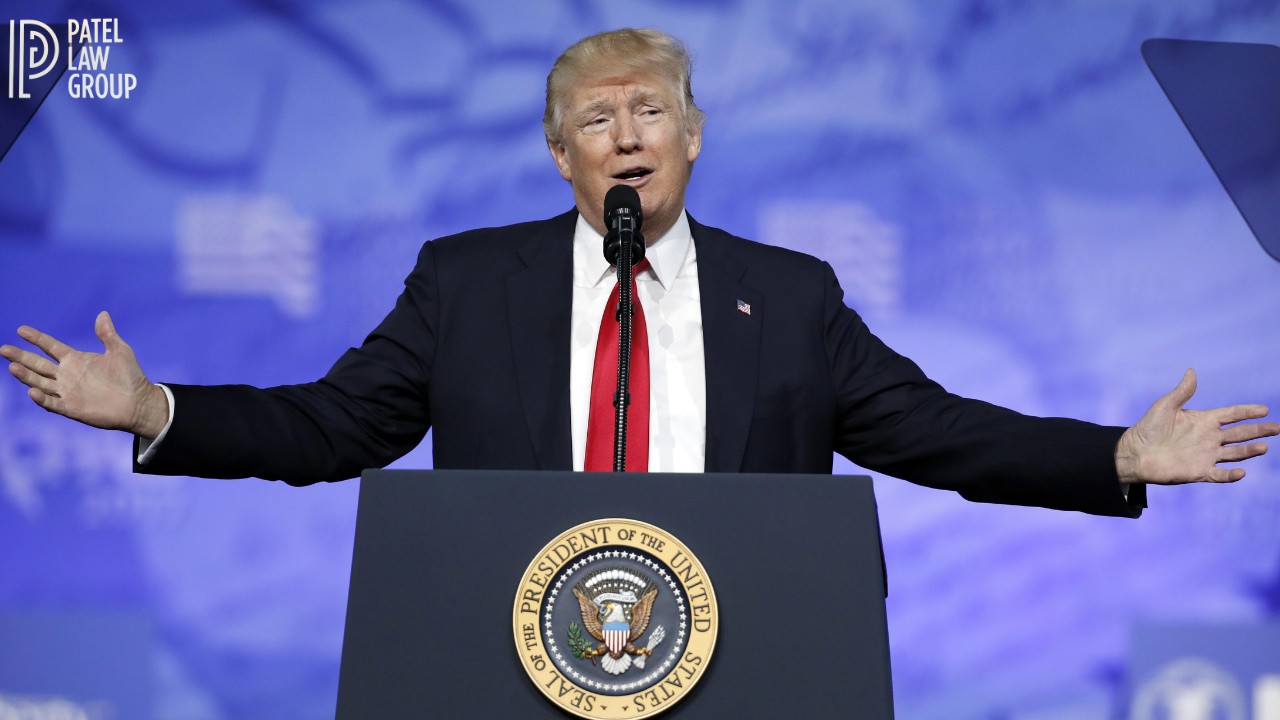On the first day of his presidency, Donald Trump signed an executive order challenging a fundamental constitutional right, birthright citizenship. The Fourteenth Amendment guarantees citizenship to individuals born within the United States. Trump’s order seeks to redefine eligibility, denying citizenship to children born to parents who are in the U.S. unlawfully, as well as to those on temporary visas, including work, study, and tourism visas. If implemented, the changes would take effect on February 19, 2025.
Legal Arguments and Responses
Within hours of the executive order’s signing, a coalition of immigrant rights groups filed lawsuits challenging its constitutionality. In addition, 22 Democratic-led states, Washington, D.C., and the city of San Francisco have also joined in filing lawsuits to block the order. They argue that the Fourteenth Amendment was specifically designed to prevent any administration from stripping individuals born in the U.S. of their citizenship.
On January 23rd, Seattle’s U.S. District Judge John Coughenour signed a temporary restraining order blocking this executive order from being implemented, stating that the executive order is “blatantly unconstitutional.” Although this is a temporary restraining order, Coughenour also stated that he would consider issuing a long-term injunction. Thus, the February 19th implementation date seems to be unlikely.
The 14th Amendment states: “All persons born or naturalized in the United States, and subject to the jurisdiction thereof, are citizens of the United States and of the state wherein they reside.”
Trump’s argument focuses on the phrase “subject to the jurisdiction thereof” within the Fourteenth Amendment. According to his interpretation, this wording excludes certain individuals (defined below) from obtaining U.S. citizenship at birth. He asserts that these individuals should be denied citizenship because their parents’ immigration status (or lack of status) means they are not fully subject to U.S. jurisdiction. However, legal scholars and experts argue that this language was originally intended to exclude only specific groups, such as foreign diplomats. Constitutional scholars argue that the intent of the amendment was to ensure citizenship for formerly enslaved individuals and their descendants.

Who Would Be Affected?
If upheld, Trump’s order would deny automatic citizenship to all children born in the U.S. after February 19, 2025, whose parents are not U.S. citizens or lawful permanent residents. Specifically, it would:
- Prevent citizenship for children born to mothers without legal status unless the father is a U.S. citizen or permanent resident.
According to estimates, approximately 150,000 children are born annually to parents without legal status. Without birthright citizenship, these children could face deportation and statelessness, losing fundamental rights such as the ability to work, vote, and participate in civic life.
- Deny citizenship to children born to parents on temporary visas (e.g., work, student, or tourist visas) if neither parent holds permanent residency or citizenship.
If this executive order takes effect, it could have significant implications for families on temporary visas (such as H-1B, F-1, L-1, etc.), potentially resulting in a generation of children born in the U.S. without legal status. This raises critical questions about the legal obligations of parents, such as whether they would need to file a non-immigrant petition with USCIS immediately upon their child’s birth to ensure lawful status. The uncertainty surrounding this policy could create undue stress and administrative burdens for families who are residing in the U.S. legally under existing visa programs
Conclusion
Trump’s executive order on birthright citizenship has sparked widespread legal and political controversy. As constitutional rights and the futures of thousands of children remain at stake, we are likely to see intense legal battles that could significantly impact U.S. immigration policy. While many legal experts argue that Trump’s interpretation contradicts well-established legal precedent, the ultimate decision will likely rest with the Supreme Court.
Although, this would not be the first time the Court has ruled on the 14th Amendment; in the landmark 1898 case United States v. Wong Kim Ark, the Supreme Court affirmed that a child born in the U.S. to Chinese parents (who themselves were ineligible for naturalization) was nonetheless a U.S. citizen with full rights. Thus, it is expected that the Supreme Court will reaffirm the previous decision.
For further questions or legal assistance regarding this executive order and its potential implications, please contact Attorney Chris Prescott at cprescott@patellegal.com.